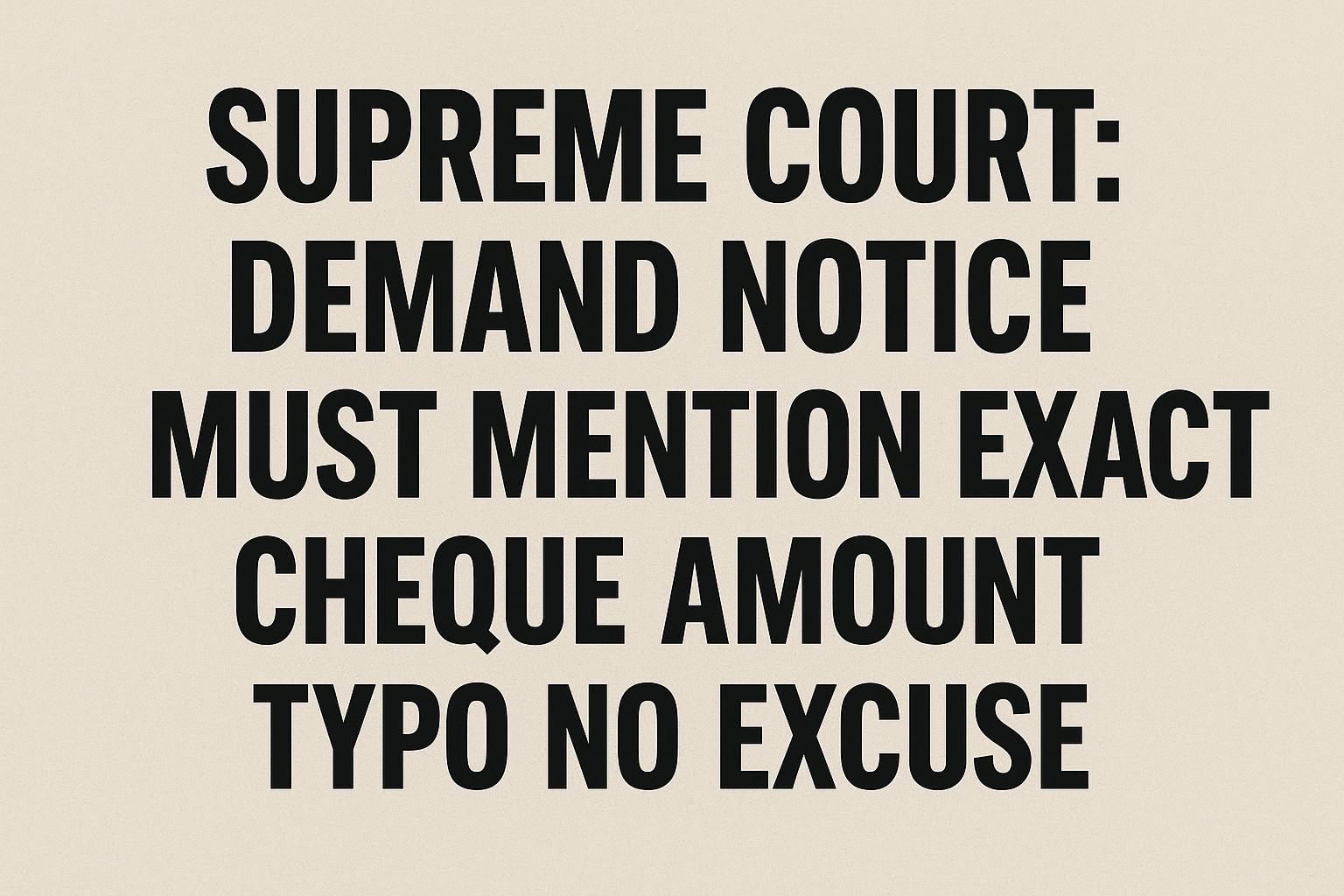The Supreme Court in Kaveri Plastics v. Mahdoom Bawa Bahruden Noorul has delivered a significant ruling under Section 138 of the Negotiable Instruments Act, 1881. The Court held that if a statutory demand notice does not mention the exact cheque amount, the complaint under Section 138 is not maintainable. Importantly, even a typographical error in the cheque amount cannot be excused.
Background of the Case
The complainant argued that the error was merely typographical and should not render the notice invalid. The Court, however, took a strict view.
Supreme Court’s Findings
Mandatory Exactness
The Court ruled that under Section 138, the notice must mention precisely the amount for which the cheque was issued. Any deviation, however minor, invalidates the notice.
Typo No Defence
A typographical or clerical error in the cheque amount does not save the notice. Since Section 138 proceedings are penal in nature, strict compliance with statutory conditions is required.
Precedents Affirmed
The Court referred to earlier judgments, including Suman Sethi v. Ajay K. Churiwal, which clarified that while claims for interest or costs can be separately added, the cheque amount itself must be reflected correctly in the notice.
Result of the Case
As the demand notice mentioned ₹2 crore instead of the actual cheque amount of ₹1 crore, the notice was held invalid. The complaint under Section 138 was therefore not maintainable.
Practical Implications
For Complainants
Accuracy is crucial. A wrongly stated amount in the demand notice can destroy the case, irrespective of the genuineness of the claim.
For Accused
This judgment provides a valid defence if the statutory notice issued against them contains errors in the cheque amount.
For Lawyers
The ruling highlights the importance of meticulous drafting. Legal practitioners must cross-verify cheque details and proofread notices thoroughly.
For Businesses
Companies should ensure internal checks before issuing demand notices. Training staff and legal teams on compliance with NI Act requirements is essential to avoid costly litigation setbacks.
Key Legal Principle
The decision underscores a fundamental rule: C onditions in penal statutes must be strictly complied with. Since issuing a valid demand notice is a condition precedent under Section 138, any defect in the notice goes to the root of maintainability.
Conclusion
The ruling in Kaveri Plastics v. Mahdoom Bawa Bahruden Noorul is a stern reminder that when it comes to penal provisions like Section 138 of the NI Act, precision is non-negotiable. Even a small typographical error in the cheque amount can render the demand notice invalid and derail the entire complaint.




